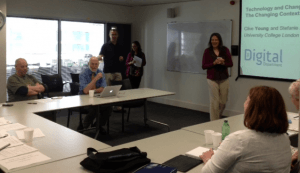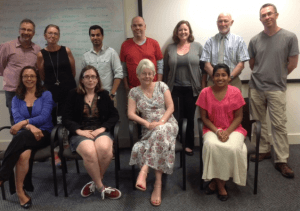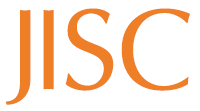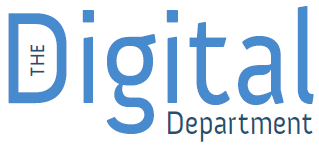Summer school: Technology and Change in Higher Education
By Clive Young, on 20 July 2013
 Last week with colleagues Martin Oliver and Cat Edera from the Institute of Education (IoE) Stafanie Anyadi and I ran a very successful summer school entitled ‘Technology and Change in Higher Education’. Both the IoE and ourselves have related projects under the JISC Digital Literacies programme and we were keen to explore some of the issues around emerging practices, roles and identities related to the changing technological environment.
Last week with colleagues Martin Oliver and Cat Edera from the Institute of Education (IoE) Stafanie Anyadi and I ran a very successful summer school entitled ‘Technology and Change in Higher Education’. Both the IoE and ourselves have related projects under the JISC Digital Literacies programme and we were keen to explore some of the issues around emerging practices, roles and identities related to the changing technological environment.On the first day Stefanie and I focused on the issues that had been highlighted by our The Digital Department project and the work we had done around the CMALT programme. We were fortunate to have a very lively group of participants; academics, support staff and administrators who were very happy to share ideas and experiences.
We first explored the notion of changing identities, how rapid technological and institutional change resulted in a fluidity of job roles, often expanding quite extensively from the standard job descriptor. Individuals seemed to be creating their own ‘operational space’, often moving flexibly between ‘academic’ and ‘administrative’ or support roles. This was not exactly the ‘third space’ professional enviroment that Celia Whitchurch [link to Celia’s paper] described – although some of our participants identified themselves as such – but a more adaptive professional environment in which previous academic/support boundaries were blurred. This fluidity was not without its problems. Several challenging issues were discussed.
- Authority had to be self-generated instead of being inherent in the job role
- Individuals had to create their own networks of influence.
- Professional development and career progression routes were less clear
- The boundary-jumping aspect may be ‘transgressive’ and challenge institutional ideas of identity and affiliation
- It might be difficult for colleagues and the institution to relate to fluid roles and recognise individual expertise
- This may result in border or ownership issues of issues that can be manifested as barriers
- Recruitment and induction into these ‘personally-constructed’ roles can be another problemThe group noted that restructuring if well implemented could be way of providing a ‘snapshot’ of these dynamic changes and route for the institution to accommodate them.
 There were many positives. Such adaptive roles could help students navigate though existing ‘chains of support’. The importance in this respect of the Teaching or Departmental Administrator was mentioned several times. Technology could play a large role in providing a breadth of support for students and staff but often a human ‘broker’ was still much appreciated.
There were many positives. Such adaptive roles could help students navigate though existing ‘chains of support’. The importance in this respect of the Teaching or Departmental Administrator was mentioned several times. Technology could play a large role in providing a breadth of support for students and staff but often a human ‘broker’ was still much appreciated. We completed our session by exploring the important role of new pedagogies in this process, how as e-learning had become mainstream it needs a wider group to support it. More communicative designs (using forums especially) also encouraged changes in the types of e-learning support needed and this was particularly evident in distance learning and high-tech blends of campus learning, which often took on aspects of distance learning anyway. Indeed the complexities of the increasingly rich digital environment needed skills in how to ‘signpost’ students, how to engage students in communication, how to ‘align’ their activities with the learning outcomes, but also how to support them in the wider range of digital literacies required.
 Close
Close


 JISC
JISC 

